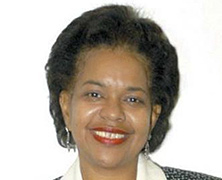It is not realistic to expect a career without problems. Problems and obstacles are invaluable opportunities that allow you to grow, act creatively, and gain insight into difficult situations. I find that how you think is more important than what you are thinking about. If you think negative and fearful thoughts, you are putting up internal roadblocks which do not allow you to engage at the highest level. Your approach to a problem will generally determine the outcome. You can tell a lot about someone’s character by assessing their approach in dealing with difficult situations because you have an opportunity to see critical thinking and problem-solving skills at work in less-than-ideal circumstances. It’s easy to make the right decisions when things are going well; however, when the situation is not ideal, it’s a whole different ballgame.
The personal obstacle that is most prevalent today is the reluctance to change. I consider myself a risk taker: I am not afraid to fail, and I am not afraid to change. In fact, the one constant throughout my career has been change. I’ve applied for jobs and assignments that were not in my area of expertise because I think it is important to step out of my comfort zone to increase my knowledge and area of responsibility. I am comfortable with unknown situations because my faith allows me to live a life where I trust God for outcomes. That is truly liberating, and it allows me to adapt to almost any situation, political climate, or business culture. In almost every situation, I count my blessings and try to have an attitude of thankfulness.
A frequent workplace obstacle can be interactions with others. I believe that for disagreements at work, every battle is not a war, and you don’t have to win every argument. Some things are just not that important. Even in the most dire situation, there is a greater good that will ultimately prevail. Exercising patience is critical. Some fires burn themselves out over time, and some battles you don’t need to fight; however, there are some things that are deal breakers. The key is knowing when and where you really need to be engaged and trying not to expend unnecessary energy when a situation is not that important. Even when you have disagreements, valuing the opinion of others is important. Every person should be treated with dignity and respect, and their different perspectives should be respected. You don’t have to be disagreeable to disagree; delivery is critical.







